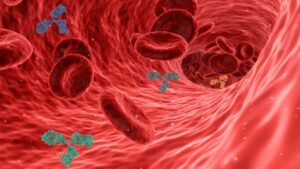Why is the medical/pharmaceutical/research community (also known as “Big Pharma”) not conducting intensive efforts to find a CURE for herpes, or at least a VACCINE?
The medical and pharmaceutical research community has been making significant efforts to find a cure or an effective vaccine for herpes. However, developing treatments and vaccines for complex viral diseases like herpes is a challenging scientific task that requires time, resources, and continuous investment.
Important points to consider in finding a vaccine for the cure of herpes:
Virus complexity
Herpes is caused by different types of viruses, such as herpes simplex virus type 1 (HSV-1) and type 2 (HSV-2), and there are also other less common subtypes. These viruses have the ability to remain latent in the human body, meaning they can hide within cells and reactivate periodically. The complexity of the viral life cycle makes it difficult to develop targeted treatments.
Scientific challenges
Herpes is a highly adaptable virus, making it challenging to develop effective therapies. The virus can undergo mutations and develop resistance to antiviral drugs. Additionally, herpes has the ability to evade the immune system, making it difficult to create a lasting immune response.
Resources and investment
Medical and pharmaceutical research requires significant investments in terms of time, money, and human resources. Developing a cure or vaccine requires a series of large-scale clinical studies, which can take years to complete. Moreover, research investments often rely on funders such as pharmaceutical companies, academic institutions, and government agencies.
Available treatments
Despite there being no definitive cure for herpes, there are antiviral treatments that can help control symptoms and reduce the frequency of recurrences. These medications can be effective in alleviating symptoms and suppressing the virus, although they do not completely eliminate it from the body.
It is important to emphasize that the medical and pharmaceutical community continues to conduct research and clinical trials to find better treatments and a possible cure or vaccine for herpes. However, the complexity of the virus and the scientific challenges involved make this process time-consuming and require ongoing research and development efforts.




